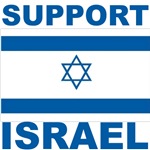Media coverage of the War on Terror, shades of Vietnam.
In the MSM (and it must be said, often in blogs too), spin is applied, and it seems to me that raw material is often first filtered through ideology, and weighted with political leanings. Quite often the MSM editorial policy is left of mainstream opinion, and regards the WoT, or War on Terror, very anti war and pro disengagement. It is almost as if, disagreeing with the US and coalition involvement, many in the MSM wish the allies would lose, and then they could say 'told you so'.
Shades of Vietnam, particularly the coverage of the Tet offensive. Wikipedia describes the outcome as;
"...Decisive ARVN, American and allied forces military victory, but an equally disastrous political and psychological setback for the United States...".But US (and Australian) public opinion turned against the war in the months following Tet, due largely to the spin put on the reporting by the print and especially the electronic media of the time.
This article discusses the coverage, and quotes some interesting sources;
and;"...The turning point in Vietnam was the Tet Offensive of February, 1968. It was a crushing defeat for the Viet Cong.
"Our losses were staggering and a complete surprise," said North Vietnamese Army Col. Bui Tin in a 1995 interview. "Our forces in the South were nearly wiped out. It took until 1971 to re-establish our presence."...".
"..."The Tet Offensive proved catastrophic to our plans," said Truong Nhu Tang, minister of justice in the Viet Cong's provisional government, in a 1982 interview. "Our losses were so immense we were unable to replace them with new recruits."...".So the coverage of the event by 'our' media portrayed at decisive tactical - if not strategic victory, into a propaganda win for the enemy.
For example, at Long Tan, an entire REGIMENT of Vietcong ambushed a single company of Aussies (that's odds of something like to 25:1 BTW), and got their arses comprehensively kicked for their efforts. Artillery support and helicopter resupply being decisive advantages. But that battle, and other battles like Khe Sanh for the Americans, went hugely under reported. (Interesting Khe Sanh vets site here).
US, Australian, ARVN and allied troops won every major battle, and campaign in Vietnam, but lost the overall campaign (I would argue that the overall strategic goal - that of stopping or slowing communist influence in SE Asia was achieved however). The greatest single factor aiding that outcome I would argue was western media coverage.
Now I see the same slanted reporting applied to the War on Terror, particularly in Iraq. Victories go under reported, or not at all. Insurgent attacks are given more prominence than deserved, and the overall impression formed by the reader is that we are doing badly, when in fact our guys are doing very well.
One difference then to now is that the sheer number and variety of points of view of the blogs must give a more multi faceted view of any subject explored. ie More balance overall.
I suggest Milblogs are good additional reading to the legacy media, if you want a better picture of what is actually going on!











